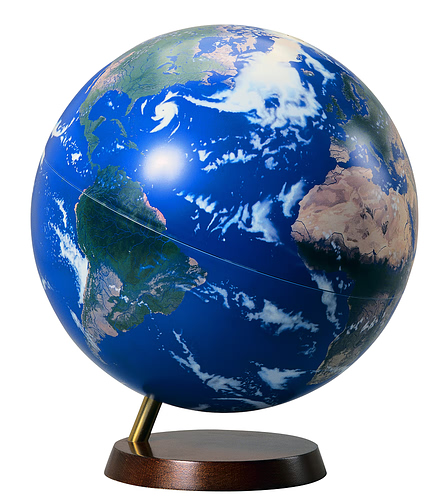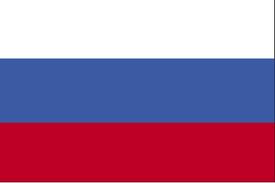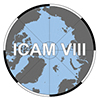|
|
|
|
|
|
|
|
No Arctic science event is on today's agenda.
|
Media
Qingdao: China's Iron Gateway to the Arctic. In January, China released its first Arctic Policy. In the U.S., fearful headlines greeted the document, from The Wall Street Journal's suspicion of whether a "new Cold War" was on the way to Foreign Policy's proclamation that "China's ready to cash in on a melting Arctic." But beyond the headlines, what's actually going on on the ground in China? What are the actual places driving China's northern push, and what's going on there? Maritime Executive
 [Canada] 'We're Quite Frustrated:' Red Tape Threatens Growing Arctic Space Industry. [Canada] 'We're Quite Frustrated:' Red Tape Threatens Growing Arctic Space Industry. Years of federal bureaucratic delay may cost the North millions of dollars in investment in an emerging high-tech industry. A Norwegian company has been waiting since 2016 for Ottawa to grant an operating license for a satellite ground receiving station in Inuvik, N.W.T. The delay has limited services the company can provide to increasingly restive clients and its partner is considering moving. CTV News
Tomsk Polytechnic University Researchers Leave for Maritime Expedition in Eastern Arctic This Autumn. Researchers from Tomsk Polytechnic University together with their Russian and foreign colleagues will leave for a maritime expedition to the eastern Arctic this autumn. They will collect water and sea floor sediment samples to study the concentration of methane, an important greenhouse gas. The expedition plans to leave Arkhangelsk this September or October.
Researchers and postgraduates from Tomsk Polytechnic University, Moscow State University, the Shirshov Institute of Oceanology of the Russian Academy of Sciences (RAS), the Vinogradsky Institute of Microbiology of the RAS, the Institute of Marine Biology of the RAS' Far Eastern branch, Stockholm University and University of Manchester will take part in the expedition. It will travel aboard the Akademik Keldysh vessel. The Arctic
 Russia to Begin Building Arctic Ocean Research Platform in New Year. Russia to Begin Building Arctic Ocean Research Platform in New Year. The construction of an ice-resistant research platform North Pole designed to study the Arctic Ocean will begin in St. Petersburg in 2019, Russian Minister of Natural Resources and the Environment Sergei Donskoy told Sputnik. "The construction stage will begin in 2019, most likely. The technical specifications are being prepared, the design stage should begin in May, it should be designed this year, and the building stage begins next year," Donskoy said. Sputnik News
College of Fisheries and Ocean Sciences. The North Pacific Ocean is one of the strongest places on Earth. A cruise on the Sikuliaq is an incredible adventure. The research vessel Sikuliaq is one of the most advanced university research vessels in the world. It has opened doors to new and groundbreaking research for students and researchers at the UAF College of Fisheries and Ocean Sciences.
|
|
Future Events
The Arctic of the Future: Strategic Pursuit or Great Power Miscalculation? May 8, 2018 (Washington, DC USA). The Center for Strategic & International Studies will host this half-day discussion on the geostrategic and geo-economic future of the Arctic. In a moderated "exit interview," the Commandant of the U.S. Coast Guard, Admiral Paul F. Zukunft, will discuss his active public advocacy for and interagency pursuit of securing greater U.S. capabilities and readiness for a rapidly changing Arctic, as well as offer some thoughts on the overall trajectory of the Coast Guard's future mission in the polar regions. Subsequent panels will closely examine Russia's future economic and security ambitions in the Arctic as well as address the key drivers of future economic growth and the forces that are shaping these new economic dynamics.
The Face of Climate Change in the Arctic: The National Media's Role in Public Disengagement. May 11, 2018 (Washington, DC USA). Elizabeth Arnold of the Harvard Kennedy School will present this event hosted by the Arctic Research Consortium of the US (ARCUS). More than a decade of national media attention to the human impacts of climate change in the Arctic has largely framed communities as victims to sell the urgency of mitigation to the public. The talk will focus on Arnold's own experience and current research of media coverage to discuss the need for journalism and science communication that includes both threat and efficacy.
Council on Earth Cryology, May 15-16, 2018 (Moscow, Russian Federation). Scientific council on Earth cryology of Russian Academy of Sciences together with Department of Geocryology of Faculty of Geology of Lomonosov Moscow State University, Institute of the Earth Cryosphere, the Tyumen Scientific Senter, Melnikov Permafrost Institute (Yakutsk) of the Siberian Branch of the Russian Academy of Science holds on May 15 - 16, 2018 an enlarged meeting with participation of the Russian and foreign scientists, engineers and experts: "Current problems of geocryology." The meeting of Scientific council on Earth Cryology of RAS has the status of the International meeting. The publication of materials in the collection of reports is planned. Submissions (Submission Form), offers on cooperation, support of a conference and papers (Sample of Paper) to e-mail: cryoconf18@gmail.com
- Addressing the energy field of the future;
- Defense energy systems in the North;
- Natural hazards and aerospace/defense;
- Empowering Alaska's entrepreneurs;
- Navigating the changing Arctic; and,
- Developing local and global energy solutions.
The Effects of Climate Change on the World's Oceans, June 4-8, 2018 (Washington, DC USA). The 4th International Symposium will bring together experts from around the world to better understand climate impacts on ocean ecosystems - and how to respond. The event is hosted by a variety of groups including International Council for the Exploration of the Sea (ICES), N. Pacific Marine Science Organization (PICES), Intergovernmental Oceanographic Commission of UNESCO (IOC), and Food and Agriculture Organization of the United Nations (FAO).
Vision on Marine Infrastructure, June 11, 2018, 1:00-3:00 pm (Washington, DC)
.
The U.S. Committee on the Marine Transportation System and its Marine Transportation System Federal partners will share their visions and priorities on maritime infrastructure, which refers to physical infrastructure, informational infrastructure (such as aids to navigation, nautical charts, and real-time meteorological and oceanographic services), and mariner needs. Open to the public, but RSVP is required to access the location. Please contact Jaya.Ghosh@cmts.gov by June 6, 2018 to RSVP. See here for additional details.
 POLAR 2018, June 15-27, 2018 (Davos, Switzerland). POLAR2018 is a joint event from the Scientific Committee on Antarctic Research (SCAR) and the International Arctic Science Committee (IASC). The SCAR meetings, the ASSW and the Open Science Conference will be hosted by the Swiss Federal Institute for Forest, Snow and Landscape Research WSL under the patronage of the Swiss Committee on Polar and High Altitude Research. The WSL Institute for Snow and Avalanche Research SLF is organizing POLAR2018. POLAR 2018, June 15-27, 2018 (Davos, Switzerland). POLAR2018 is a joint event from the Scientific Committee on Antarctic Research (SCAR) and the International Arctic Science Committee (IASC). The SCAR meetings, the ASSW and the Open Science Conference will be hosted by the Swiss Federal Institute for Forest, Snow and Landscape Research WSL under the patronage of the Swiss Committee on Polar and High Altitude Research. The WSL Institute for Snow and Avalanche Research SLF is organizing POLAR2018.
5th European Conference on Permafrost, June 23-July 1, 2018 (Chamonix-Mont Blanc, France). In the continuation of the International and Regional conferences convened by the International Permafrost Association, the 5th European Conference on Permafrost (EUCOP 2018) will be held in Chamonix-Mont Blanc, France, 23rd June - 1st July 2018. The conference aims at covering all relevant aspects of permafrost research, engineering and outreach on a global and regional level. Conference website: here.
Arctic Observing Summit 2018, June 24-26, 2018 (Davos, Switzerland). The Arctic Observing Summit (AOS) is a high-level biennial summit that provides a platform to address urgent and broadly recognized needs of Arctic observing across all components of the Arctic system. AOS 2018 will be held in Davos, Switzerland ( June 24-26) and will focus on pressing issues in the implementation and support of sustained observations that can be addressed through a business-case lens. To that end, short submissions are requested that address any and all aspects of the overarching theme and sub-themes. Additional information can be found here.
17th International Congress of Circumpolar Health (ICCH17), August 12-15, 2018 (Copenhagen, Denmark). The ICCH congresses are held every third year in different locations in the circumpolar area and represent the largest scientific meetings worldwide on circumpolar health. The ICCH congresses serve as the primary source of information exchange and scholarly communication in issues relating to circumpolar health. More than 750 participants generally register and participate in each Congress, and more than 400 scientific papers or posters are usually presented.
UArctic Congress 2018, September 3-7, 2018 (Oulu and Helsinki, Finland).
The UArctic Congress 2018 will bring together key UArctic meetings and a science conference into one single gathering, including business meetings of the Council of UArctic, Rectors' Forum, Student Forum, and Thematic Networks & UArctic Institutes Leadership Team. The Congress is an integral part of the Finland's Arctic Council chairmanship program, and open to the public. The event will highlight the themes and priorities of the Finnish chairmanship, including the goals of the United Nations' 2030 Agenda for Sustainable Development, and the Paris Agreement under the UN Framework Convention on Climate Change.
Scientific Exploration of the Arctic and North Pacific (SEA-NorP), September 25-27, 2018 (Mt. Hood, Oregon USA). This workshop will include discussion of hypotheses that can be tested by scientific drilling in the region, the technology necessary to achieve those goals, ideal sites for drilling based on existing data, and where additional site survey data is needed. The goal of the workshop organizers is that multiple proposals will be initiated at the workshop, both for full cruise legs and for shorter, targeted expeditions around the following themes: ocean gateways, geohazards, volatile cycling, ice histories at transition zones, biosphere and climate.
The second Arctic Biodiversity Congress is hosted by the Conservation of Arctic Flora and Fauna (CAFF), the biodiversity working group of the Arctic Council, and the Ministry of the Environment, Finland. The second Arctic Biodiversity Congress will build on the success of the first Congress, held in 2014 in Trondheim, Norway, and will bring together scientists, policymakers government officials, Indigenous representatives, Traditional Knowledge holders, industry, non-governmental organizations, and others to promote the conservation and sustainable use of Arctic biodiversity.
|
|

  
4350 N. Fairfax Drive, Suite 510
Arlington, VA 22203, USA
External links in this publication, and on the USARC's World Wide Web site ( www.arctic.gov) do not constitute endorsement by the US Arctic Research Commission of external Web sites or the information, products or services contained therein. For other than authorized activities, the USARC does not exercise any editorial control over the information you may find at these locations. These links are provided consistent with the stated purpose of this newsletter and the USARC Web site.
|
|
|
|
|
|
|
|
|
 [Canada] 'We're Quite Frustrated:' Red Tape Threatens Growing Arctic Space Industry. Years of federal bureaucratic delay may cost the North millions of dollars in investment in an emerging high-tech industry. A Norwegian company has been waiting since 2016 for Ottawa to grant an operating license for a satellite ground receiving station in Inuvik, N.W.T. The delay has limited services the company can provide to increasingly restive clients and its partner is considering moving. CTV News
[Canada] 'We're Quite Frustrated:' Red Tape Threatens Growing Arctic Space Industry. Years of federal bureaucratic delay may cost the North millions of dollars in investment in an emerging high-tech industry. A Norwegian company has been waiting since 2016 for Ottawa to grant an operating license for a satellite ground receiving station in Inuvik, N.W.T. The delay has limited services the company can provide to increasingly restive clients and its partner is considering moving. CTV News Russia to Begin Building Arctic Ocean Research Platform in New Year. The construction of an ice-resistant research platform North Pole designed to study the Arctic Ocean will begin in St. Petersburg in 2019, Russian Minister of Natural Resources and the Environment Sergei Donskoy told Sputnik. "The construction stage will begin in 2019, most likely. The technical specifications are being prepared, the design stage should begin in May, it should be designed this year, and the building stage begins next year," Donskoy said. Sputnik News
Russia to Begin Building Arctic Ocean Research Platform in New Year. The construction of an ice-resistant research platform North Pole designed to study the Arctic Ocean will begin in St. Petersburg in 2019, Russian Minister of Natural Resources and the Environment Sergei Donskoy told Sputnik. "The construction stage will begin in 2019, most likely. The technical specifications are being prepared, the design stage should begin in May, it should be designed this year, and the building stage begins next year," Donskoy said. Sputnik News


